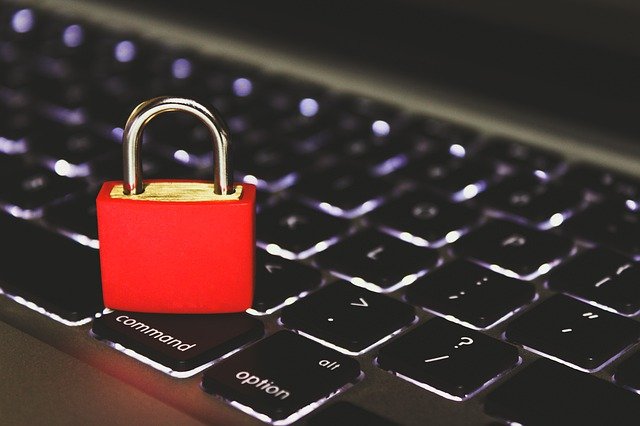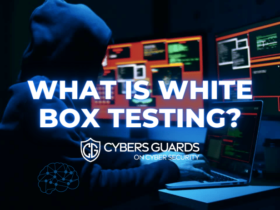As technology continues to evolve, the risk of cyber attacks increases. In response, companies and organizations around the world are investing in cybersecurity measures to protect themselves and their customers. Part of these measures includes hiring ethical hackers to identify vulnerabilities in their systems before malicious hackers can exploit them. If you’re interested in a career in ethical hacking, you’re in luck – there are many certifications available to help you gain the skills and knowledge you need to succeed. Let’s take a closer look at the best ethical hacking certifications available and how to choose the right one for your career goals.
Understanding Ethical Hacking and Its Importance
Before diving into the certifications themselves, it’s important to understand the basics of ethical hacking and why it’s so important in today’s digital landscape.
With the rise of technology, everything from personal information to company data is stored online. Cybersecurity has become a pressing issue as hackers become more sophisticated in their methods of attack. It’s not just large corporations that are at risk; small businesses and individuals are also vulnerable to cyber attacks. Ethical hacking helps to identify and address these vulnerabilities before they can be exploited by malicious hackers.
What is Ethical Hacking?
Ethical hacking, also known as “penetration testing,” is a process in which expert hackers, known as “ethical hackers,” are contracted to test computer systems, networks, and applications to identify vulnerabilities. Unlike malicious hackers, ethical hackers use the same methods and tools but with the permission of the organization, and ultimately provide a report containing recommendations for how to improve security.
These recommendations can range from implementing stronger passwords and firewalls to updating software and hardware. Ethical hackers work closely with organizations to ensure that their digital infrastructure is secure and protected from cyber attacks.
The Role of Ethical Hackers in Cybersecurity
Ethical hackers play a crucial role in cybersecurity since they use their skills to identify vulnerabilities that malicious hackers could exploit. By testing the security measures of an organization’s digital infrastructure, ethical hackers help to prevent data breaches and other cyber attacks. As such, ethical hacking has become an increasingly important and lucrative field.
Organizations are willing to pay top dollar for ethical hackers who can help them identify and address vulnerabilities in their systems. With the demand for cybersecurity professionals on the rise, ethical hacking is a career path with a lot of potential for growth and advancement.
Ethical Hacking vs. Malicious Hacking
The difference between ethical hacking and malicious hacking can be boiled down to two main factors: permission and intent. Ethical hackers have express permission to test an organization’s security measures and aim to help the organization improve their security. Malicious hackers, on the other hand, have no permission and aim to steal or manipulate data for personal gain.
While ethical hacking may use the same methods and tools as malicious hacking, the intent and outcome are vastly different. Ethical hacking helps to prevent cyber attacks and protect sensitive information, while malicious hacking can cause irreparable damage to individuals and organizations alike.
Top Ethical Hacking Certifications
As technology continues to advance, cybersecurity has become an increasingly important issue for businesses, governments, and individuals. Ethical hacking, or the practice of using hacking techniques for the purpose of identifying and addressing vulnerabilities in computer systems, has become a crucial component of cybersecurity. If you’re interested in pursuing a career in ethical hacking, obtaining a certification can help you demonstrate your skills and knowledge to potential employers. Let’s take a look at the top ethical hacking certifications available.
Certified Ethical Hacker (CEH)
The Certified Ethical Hacker (CEH) certification is offered by the International Council of Electronic Commerce Consultants (EC-Council). This certification covers a wide range of topics, including network security, threat analysis, and system hacking. The exam consists of 125 multiple-choice questions and must be completed within four hours. This certification is highly regarded in the industry and is a requirement for many cybersecurity roles.
CEH certification holders have demonstrated their ability to identify and address vulnerabilities in computer systems, as well as their knowledge of the latest hacking techniques and tools. This certification is particularly useful for those who are just starting out in the field of ethical hacking, as it provides a comprehensive introduction to the subject.
Offensive Security Certified Professional (OSCP)
The Offensive Security Certified Professional (OSCP) certification from Offensive Security is known for its rigorous hands-on approach to ethical hacking testing. This certification involves a 24-hour exam during which candidates are expected to identify vulnerabilities in a simulated network environment. The exam is designed to test all aspects of a candidate’s ethical hacking skills, including information gathering, vulnerability identification, and exploitation.
OSCP certification holders have demonstrated their ability to think creatively and strategically when it comes to identifying and addressing vulnerabilities in computer systems. This certification is particularly useful for those who have already gained some experience in the field of ethical hacking and are looking to take their skills to the next level.
CompTIA Security+
The CompTIA Security+ certification is a broad-based certification that covers many aspects of IT security, including network security, cryptography, and access control. This certification is recognized by many organizations and is a requirement for many cybersecurity roles. The exam consists of 90 questions and must be completed within 90 minutes.
CompTIA Security+ certification holders have demonstrated their ability to understand and implement a wide range of IT security measures. This certification is particularly useful for those who are looking to gain a broad understanding of IT security, rather than focusing solely on ethical hacking.
Certified Information Systems Security Professional (CISSP)
The Certified Information Systems Security Professional (CISSP) certification from (ISC)² is a highly respected certification that covers many aspects of IT security, including risk management, asset security, and security operations. This certification requires a minimum of five years of experience in IT security and consists of 250 multiple-choice questions. The exam must be completed within six hours and is known for being challenging.
CISSP certification holders have demonstrated their ability to think strategically when it comes to IT security, as well as their ability to manage and implement security measures across an entire organization. This certification is particularly useful for those who are looking to take on leadership roles in the field of IT security.
Global Information Assurance Certification (GIAC)
The Global Information Assurance Certification (GIAC) offers a range of certifications for ethical hackers, including the GIAC Penetration Tester (GPEN) certification and the GIAC Web Application Penetration Tester (GWAPT) certification. These certifications cover a range of topics, including penetration testing and web application security. The exams range in length from three to six hours and consist of up to 150 multiple-choice questions.
GIAC certification holders have demonstrated their ability to identify and address vulnerabilities in a variety of different contexts, including web applications and network systems. These certifications are particularly useful for those who are looking to specialize in a particular area of ethical hacking.
Choosing the Right Certification for Your Career Goals
Now that we’ve covered the top ethical hacking certifications available, it’s important to choose the right certification for your career goals. Here are some factors to consider when making your decision:
Assessing Your Current Skill Level
Before choosing a certification, it’s important to assess your current skill level. Some certifications require more advanced knowledge and experience than others, so it’s important to choose a certification that is a good match for your current skill set.
Identifying Your Career Path
It’s also important to consider your long-term career goals. Some certifications are more broad-based and applicable to many different cybersecurity roles, while others are more specialized. Consider the type of role you want to pursue in the future and choose a certification that aligns with that career path.
Comparing Certification Costs and Requirements
Finally, it’s important to compare the costs and requirements of each certification before making a decision. Some certifications are more expensive than others and may require more preparation time. It’s important to factor in the cost of study materials and exam fees when making your decision.
Preparing for Ethical Hacking Certification Exams
Once you’ve chosen the right ethical hacking certification for your career goals, it’s important to prepare thoroughly for the exam. Here are some tips to help you prepare:
Study Materials and Resources
There are many study materials and resources available for each certification, including study guides, practice exams, and online courses. Take advantage of these resources to ensure you’re fully prepared for the exam.
Hands-On Practice and Labs
Many certifications, such as the OSCP, require a hands-on approach to testing. Practicing in simulated environments or labs can help you build the skills and knowledge you need to succeed.
Networking with Other Ethical Hackers
Finally, networking with other ethical hackers can help you stay up-to-date with industry trends and best practices. Joining ethical hacking forums and attending conferences can help you build your professional network and gain valuable insights from others in the field.
Conclusion
Choosing an ethical hacking certification is an important decision that can have a significant impact on your cybersecurity career. By understanding the basics of ethical hacking and choosing a respected certification that aligns with your career goals, you can gain the skills and knowledge needed to succeed in this exciting field. With thorough preparation and hard work, you can become a highly sought-after ethical hacker and play an important role in keeping organizations and individuals safe from cyber attacks.











FIND US ON SOCIALS